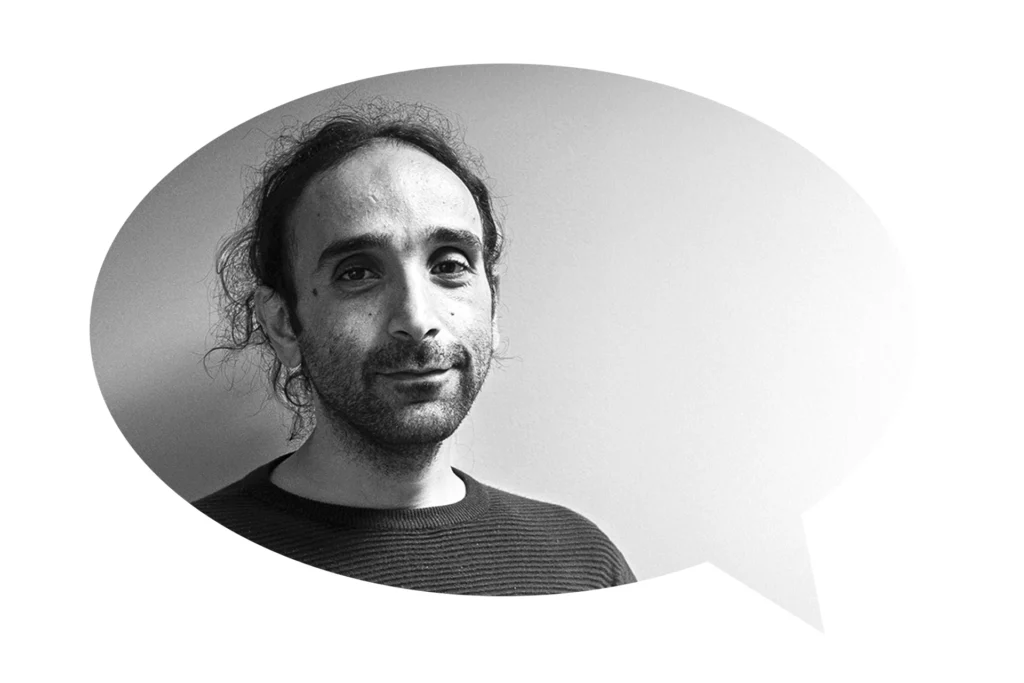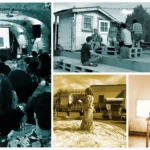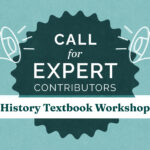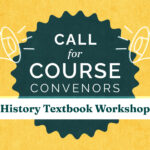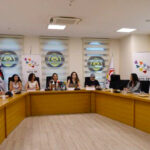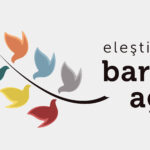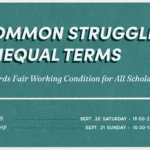By Ammar Kandeel
“Off University provided a safe space for me as a scholar and for students with different perspectives.”
During the Summer semester of 2024, Off University and the New University in Exile Consortium gave me the opportunity to co-lead an online seminar on knowledge production, memory, and conflicts in the Middle East. With my awesome partner Dr. Moustafa Alabsi, this was the first time that I was able to use my research about Palestine in teaching a diverse group of learners from master’s students to activists. It encouraged me to experiment with new teaching methods, based on an interdisciplinary perspective that combines history, epistemology, literature, art, and digital humanities.
In the tragic context of the war in Gaza, I felt the urgent need for a multifaceted glance on the question of knowledge production, examining the historically marginalized Palestinian narrative in the Western sphere as a case study. While Western academia has not offered a favourable environment for critical thinking about Palestine, Off University provided a safe space for me as a scholar as well as for students with different perspectives, to reflect constructively on the renewed epistemological challenges of a hundred-year conflict. This was made possible by the flexibility I was afforded in conceiving the syllabus and in implementing a student-centered communication approach to lessons. This type of academic freedom allowed me to use my research to engage with the societal need for rational models of peace and the possibilities of developing peace-oriented knowledge.
After the beginning of the course in spring 2024, there was this insistent question for me: what is the point of theoretical scholarship and academic knowledge? Can they really respond to the horrors we see and the fresh smell of innocent blood in the victims’ stories? Such questions continue to challenge me ethically and how to give meaning and value to ideas and teaching. I must also mention that the diverse characteristics of the course participants contributed to my consciousness of the need to make my research evolve in a societal direction. Participants’ expectations and discussions were very personal and focused on social change – something rarely found or encouraged in conventional academic spaces where I had studied and worked. All of these factors encouraged me to get out of my intellectual comfort zone and to introduce new and unfamiliar concepts, to look further at the debates in the media and in my circles, in order to introduce new research questions and exercises in the sessions.
All these institutional factors proved effective in achieving the course outputs. With my co-instructor I witnessed students engaging actively with the course material and shaping it continuously through their contributions. More significantly, we felt we were forging new and alternative ways of approaching the conflict in a more inclusive critical framework for a new generation of scholars. Finally, I should say that Off University and the Consortium also empowered my career as a scholar at risk and in exile.
As a Palestinian who was born and raised in Arab exile, and who continues to live in European exile, in a context where I have been self-censoring my academic expression to a certain extent, this was the first time I felt a deep connection between who I am – or more precisely who I might be – and what I do in my social and professional life. Dealing daily with news of deaths and continuous displacement of my family, friends and people of Gaza and the West Bank, it was not easy to continue my research work. On several occasions, confronted by the crushing war machine and the hypocrisy of dominant authorities (including academic ones), I questioned the value of my words and the faith in critical knowledge. These few months with Off University, the Consortium, and the community of scholars and students revived my faith. They showed me that I was not alone. After each session, and now after the end of this course, the idea of the “light at the end of the tunnel” is not a mere illusion anymore, but a feasible project.

